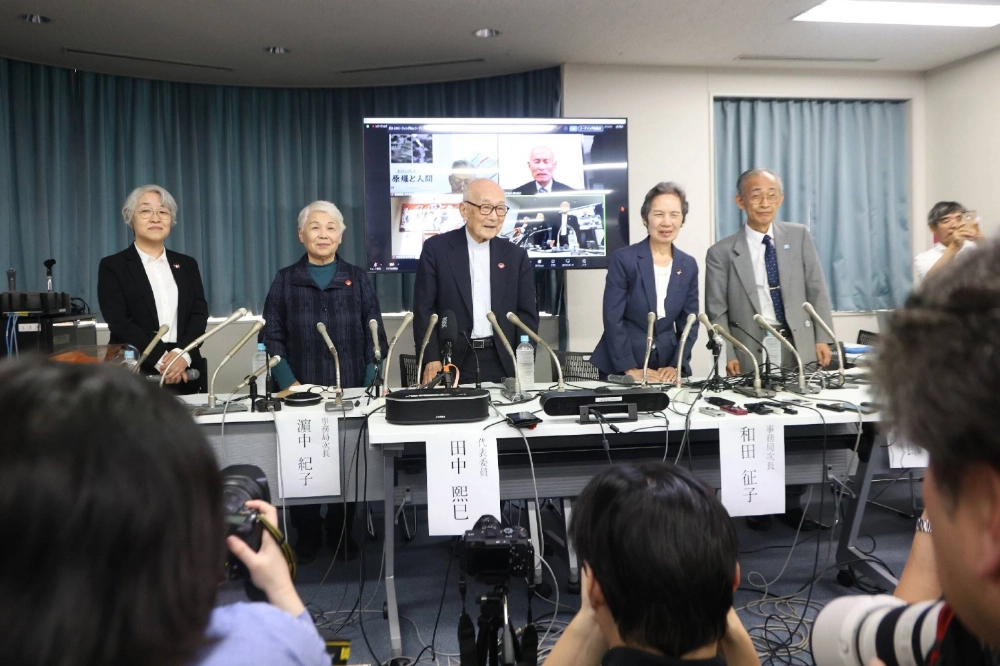Eighty years after the U.S. atomic bombings of Japan, the risk of nuclear attack is at an extreme level, despite the robust efforts of Nihon Hidankyo, which received the 2024 Nobel Peace Prize.
Last year, the Norwegian Nobel Committee praised Nihon Hidankyo, formally called the Japan Confederation of A- and H-Bomb Sufferers Organizations, for its "extraordinary" efforts, including witness testimony, that have "contributed greatly to the establishment of the nuclear taboo."
In a speech during the award ceremony in Oslo last December, group co-chair Terumi Tanaka, 93, described the abolition of nuclear weapons as "the heartfelt desire" of hibakusha atomic bomb survivors.

















With your current subscription plan you can comment on stories. However, before writing your first comment, please create a display name in the Profile section of your subscriber account page.